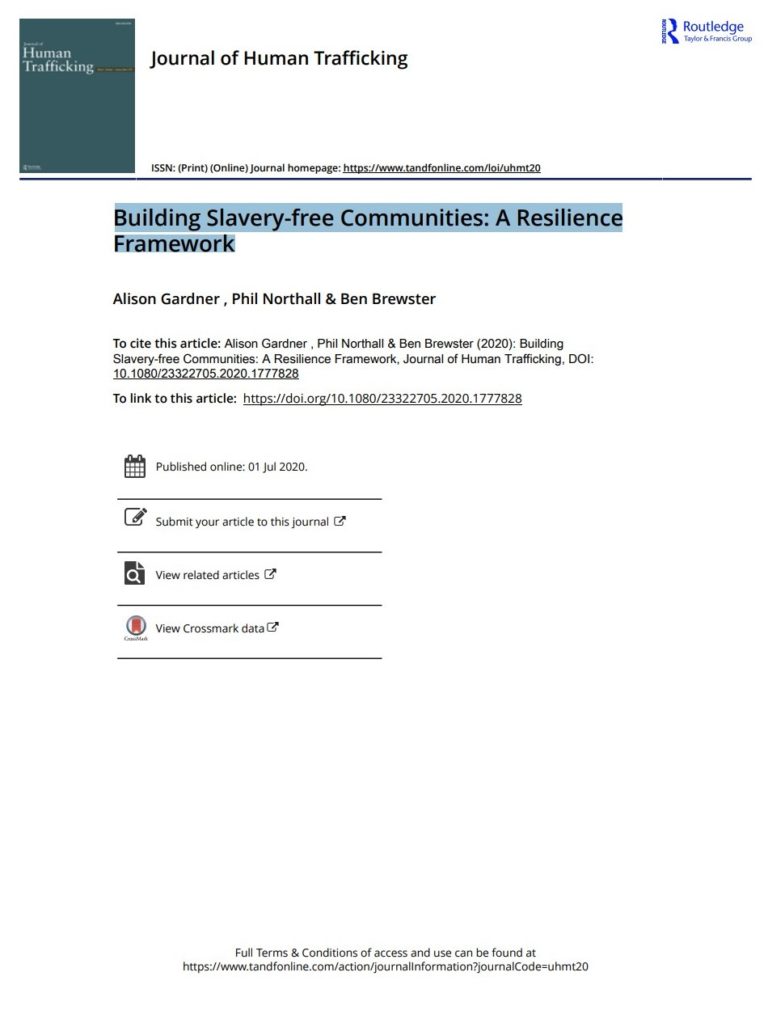There is growing interest in the use of community-based approaches to address the causes of modern slavery and the related goal of building anti-slavery ‘resilience.’ However, the concept of resilience is often poorly understood and applied without attention to the specific challenges of anti-slavery policy and practice. This paper provides a conceptual framework for understanding the process and outcomes of building resilience against contemporary forms of slavery within place-based communities. Inspired by established ecological models of resilience, we propose an adaptive ‘resilience cycle’ that activists and policymakers can draw upon to inform the process of designing and delivering policy interventions. This process is combined with a review of evidence about the multi-level social determinants of modern slavery to suggest a framework of topic areas for local review and measurement, as a means to assess existing gaps and assets, enable comparative learning, and measure progress toward goals. We also outline a future research agenda exploring locally grounded perspectives on modern slavery risk and resilience, to improve understanding of the factors underpinning resilience across different social and economic contexts.
This article will assist policy-makers by clarifying the concept of anti-slavery resilience, which can in turn inform policy design and implementation, and help to make connections between disparate initiatives from multiple actors. By combining a process for building resilience with an overview of social determinants underpinning a slavery-free community, we offer a basis for gap-analysis and ongoing measurement. The research agenda that we outline to better understand factors underpinning resilience would make a valuable contribution to improving anti-slavery governance and assist in developing a better understanding of the linkages between achieving Sustainable Development Goal target 8.7 and wider sustainable development goals.

